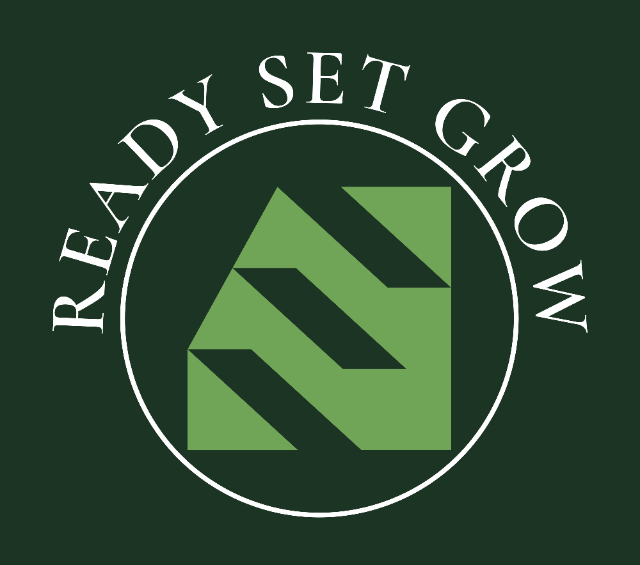The Science of Success: How to Measure Your Entrepreneurial Growth
Jun 19, 2025
What If You’ve Been Measuring Growth All Wrong?
We live in a world that praises fast wins, big numbers, and polished highlight reels. Revenue spikes, Instagram followers, investor buzz—these are the metrics we’re taught to chase.
But here’s what’s important:
Success isn’t necessarily measured by what looks good. It’s measured by what’s real, repeatable, and rooted in your business’s core truth.
If you're a new or aspiring entrepreneur, especially one building a purpose-driven venture, it’s time to stop borrowing someone else’s yardstick. To grow effectively, you need to understand your business at its most essential level—and track progress in ways that reflect your purpose, your mission, and your stage.
A Quiet, Powerful Shift: Growth That Doesn’t Show on Paper (Yet)
Over the past few years, I’ve experienced massive personal growth. Not the kind you flaunt on a spreadsheet—but the kind that reshapes how you think, lead, and connect. While my income didn’t skyrocket during that time, something more valuable happened: the quality of my business relationships improved dramatically.

And this has shifted my trajectory, not only for my business but for my personal life too.
This is a reminder that real success isn’t always tied to your income statement. In fact, it often begins far beneath it—in the invisible progress that transforms your thinking and strengthens your foundation. Those deeper shifts are the ones that fuel long-term, sustainable results.
Start Here: Define What “Growth” Means to You
Before you measure anything, pause and ask:
- What are you really trying to grow?
- Is it traction? Confidence? Strategic clarity? Audience trust?
- What would make you say, “Yes, I’m moving in the right direction”?
Growth isn’t a single number—it’s a pattern of aligned progress. And depending on where you are in your journey, the right metrics will look different.
🔗 Explore our approach in Entrepreneurial Fitness — a foundational training module designed to help you build confidence and clarity from the inside out.
🎯 Metrics That Actually Matter (Depending on Your Stage)
Here’s a breakdown of real, useful metrics that reflect meaningful growth:

Early-Stage Entrepreneurs (Just Getting Started)
- Customer Discovery Rate: How many validated learnings are you gathering each month?
- Activation Rate: How many people are experiencing a “first value moment” after encountering your business?
Growth-Stage Entrepreneurs (Building Momentum)
- Monthly Recurring Revenue (MRR): A steady sign of traction.
- Customer Retention or Churn: Are people staying and seeing value?
- Customer Lifetime Value (LTV) vs. Customer Acquisition Cost (CAC): Are you spending wisely to gain long-term customers?
- Net Promoter Score (NPS): What’s the quality of feedback from your audience?
🔗 Our upcoming Engineer Your Business Blueprint training module will offer tools to help you interpret and apply these metrics in your strategic plan.
Scaling Businesses
- Unit Economics: Are your products/services profitable at the core?
- Revenue per Employee: Are you growing efficiently?
- Operational Efficiency Ratios: How well are your systems supporting growth?
⚙️ Tools That Keep You Grounded in What Matters
Don’t just track random numbers, or the ones your friend tracks. You need to determine which ones are most relevant for your goals, and them track them in the right way. Here are a few digital tools that can help cut through the noise:
- Mixpanel: Understand what actions your website users are taking and what drives conversion.
- Amplitude: Track in-depth user behavior to identify what fuels engagement and retention.
- Segment: Create a unified data source across your customer data systems.
- Airtable: Design a simple custom dashboard to visualize the metrics that matter most to your business.
- Notion: Build flexible workspaces to organize your goals, habits, and analytics all in one place
And don’t forget that qualitative insights matter too. Simple customer interviews and consistent feedback loops can often reveal what numbers can’t. Their words are often better than data.
I am not affiliated with any of these tools and do not receive a commission if you purchase or subscribe to them. I also am not endorsing any of them. The above list is a mere taste of what is out there as far as tracking data is concerned.
You’re Allowed to Measure Differently
Too many new entrepreneurs fall into the trap of comparing their beginning to someone else’s middle. But your growth is not supposed to look like theirs. It's supposed to reflect the truth of where you are—and where you're heading. You are unique, so your measurements should be too!

That might mean:
- Tracking the number of meaningful conversations you’ve had with potential collaborators.
- Measuring the hours you’ve reclaimed from overwhelm.
- Celebrating the clarity you gained in a week that once felt like chaos.
For me, one of the things I track is how many burpees and stretching sessions I do in a week because they instantly renew my energy.
When tracked consistently, real indicators of progress lead to measurable, external success that sticks.
Final Thoughts: Redefining Success on Your Terms
You don’t need flashy results to prove you're growing. You need clarity.
Strip away assumptions. Get to the core of your business. Choose metrics that reflect where you are and where you’re going—not where others are or expect you to be.
And if you ever feel unsure, remember: some of the most meaningful growth cannot be seen by the naked eye—but it could be the thing that makes the biggest impact.

👉 Ready to Track What Matters Most?
Start by downloading our free Growth Metrics Guide for First-Time Entrepreneurs by filling in the form - you'll also explore every resource inside our free library. This guide is designed to help you identify and track meaningful progress at your stage.
📥 Download the Guide Now

